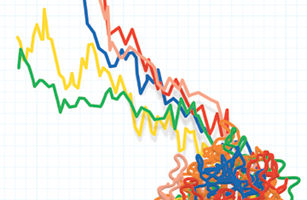
(4 of 4)
It isn't just protectionism of the old kind — the vintage that looks after domestic metal-bashing industries — that is at issue here. Brown, one of the most ardent defenders of free trade, said that "financial protectionism" was a bigger problem than trade protectionism, as nations channel their increasingly scarce capital into projects at home — where voters can see them — rather than into ones in foreign countries. When it comes to looking after the base, Brown knows whereof he speaks, as anyone from Iceland will tell you. Last fall he played an important role in the collapse of Iceland's banking system when he decided that it was more important to protect British depositors in Icelandic banks than the banks themselves.
The American Problem
Nowhere is the division between the need to satisfy both international and domestic constituencies more acute than in the U.S. Few world leaders — not even Russian Prime Minister Vladimir Putin — were crass enough to come out and say it openly in Davos, but everyone knows that the roots of both aspects of the economic crisis lie in America's long, debt-fueled consumer binge. "We've been living beyond our means for 20 years," said Rupert Murdoch in Davos, "and we have to put that right. We have to get used to the idea that we cannot live and spend in the way we have been doing." Obama's election may have been greeted with enthusiasm in much of the world, but global enthusiasm and 25 cents will get you a phone call. The plain fact is that non-Americans expect much from the Obama Administration — a stimulus package that helps both the U.S. economy and the rest of the world, a reform of the IFIs that diminishes America's weight on their boards, regulation of the American financial system so that its excesses do not infect others and measures that will increase savings and so gradually unwind global imbalances. If Obama has not at least indicated that the U.S. is moving in such a direction when the G-20 leaders meet in London, then — whatever the adoring mood on the streets may be — he will find a chilly reception behind closed doors.
Trouble is, Obama may have no alternative but to disappoint. International leaders are about to rediscover a central fact about the U.S., one that they tend to forget in good economic times when they ask little of Americans. The U.S. has an unusually open and fragmented political system, with real power centers outside the White House. The Senate has a constitutional role in approving treaties; the House of Representatives' Committee on Ways and Means has always been key to passing trade legislation. Both houses of Congress, and the executive branch itself, are constantly besieged by the most sophisticated lobbyists in the world, able to whip up campaigns in the media for or against this or that aspect of international economic cooperation.
This is not a problem that other nations have at home. (Premier Wen is not going to worry about whether China's National People's Congress will back any fresh international agreements the Chinese government signs.) But because U.S. action is so vital to reform of the global economy, and to changing the institutional structure by which it is managed, everyone else shares America's problem.
In Davos, Valerie Jarrett, a senior adviser to Obama, said that "Our economy is global, our crisis is global and our solutions must be global." She's right, of course, and was applauded for the sentiment. Under Obama, she went on to say, "America stands ready to lead," and that sentiment, too, went down well. But the next few months will be a test not of whether those good intentions are sincere — they surely are — but whether they can be backed up by actions, sometimes in the teeth of opposition from powerful domestic lobbies, that will help get the world economy moving again.
If so, global capitalism may once more show that it can create and distribute prosperity better than any other economic system, and that old Chinese fan of Adam Smith will be proved right. "The harsh winter will be gone," said Wen Jiabao last week, "and spring is around the corner." Here's hoping.